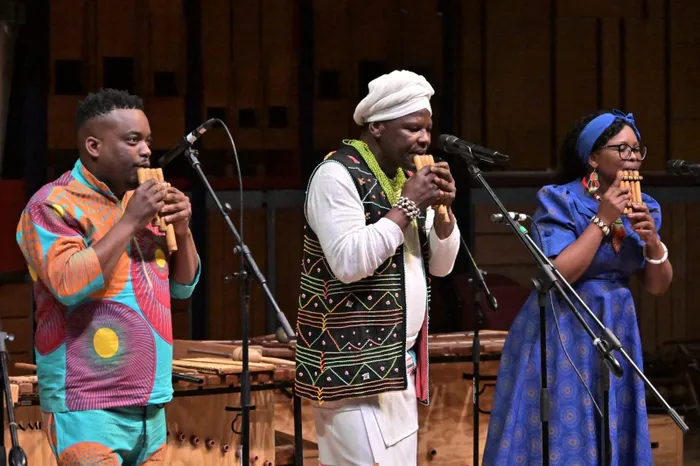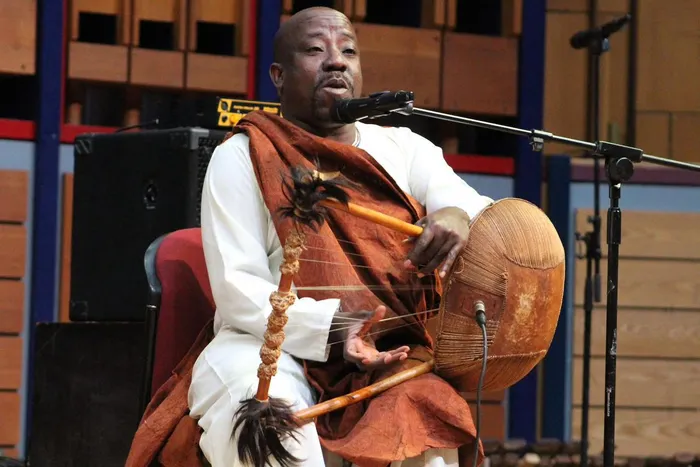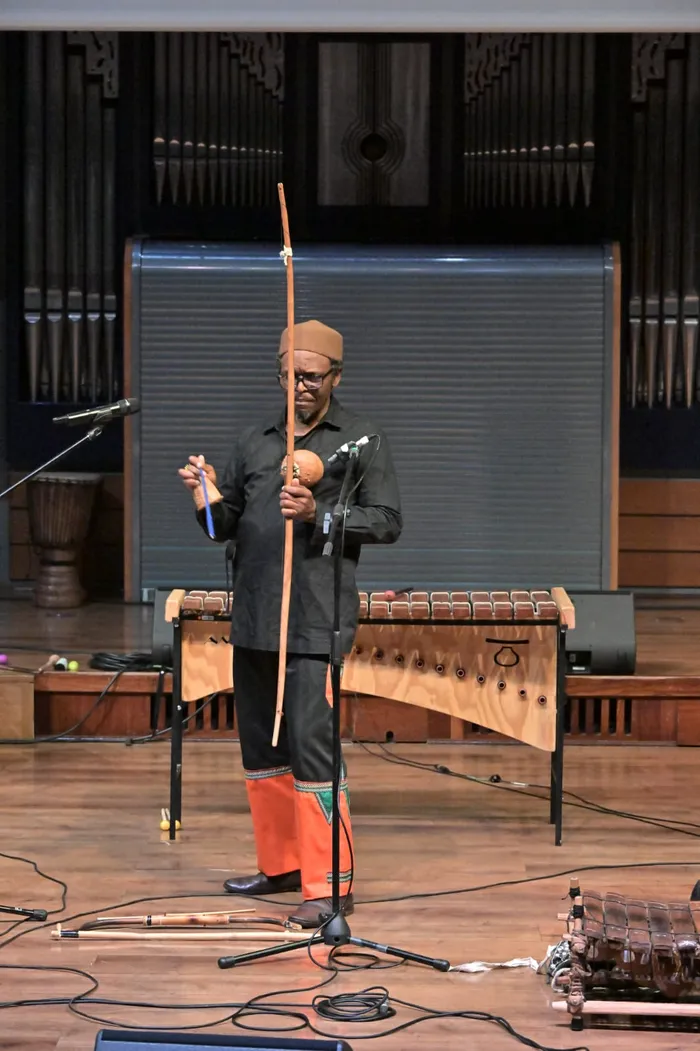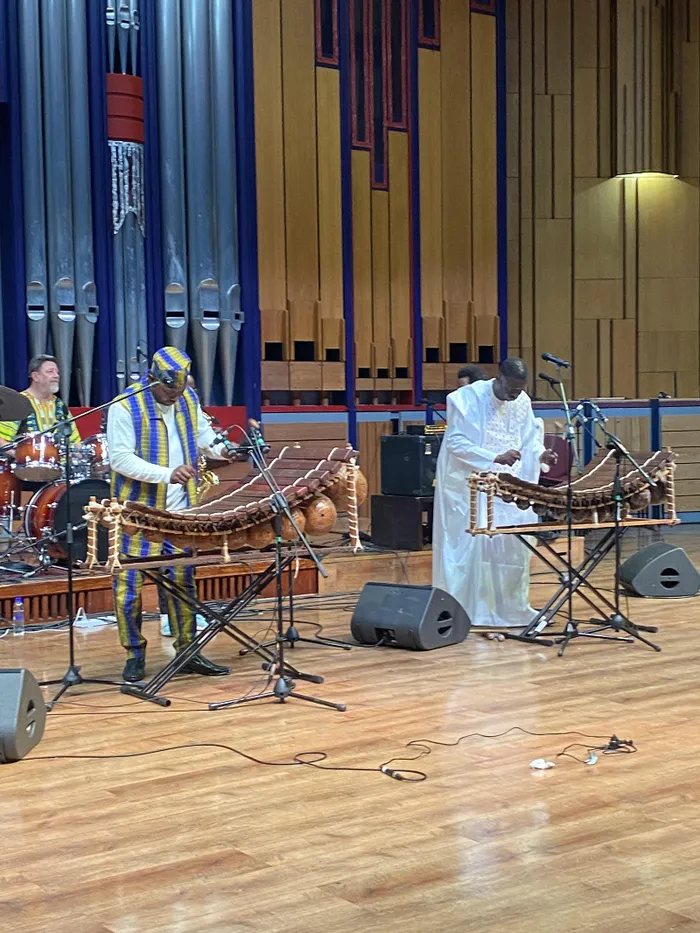
Held during Heritage Month, the festival focused on the importance of indigenous African music traditions, particularly those involving traditional bowed instruments, percussion, and string-based practices.
Image: Supplied

Held during Heritage Month, the festival focused on the importance of indigenous African music traditions, particularly those involving traditional bowed instruments, percussion, and string-based practices.
Image: Supplied
The University of South Africa, Unisa, made history with the inaugural Unisa African Music Festival hosted on 26 and 27 September 2025 at its Muckleneuk Campus in Pretoria.
The two-day event brought together renowned traditional musicians, music scholars, students, and culture lovers from across the continent to honour and explore Africa’s deep and diverse musical traditions.
Held during Heritage Month, the festival focused on the importance of indigenous African music traditions, particularly those involving traditional bowed instruments, percussion, and string-based practices.
Organisers and attendees agree it was the first event of its kind in South Africa, both in scope and intention, celebrating Africa’s musical past while positioning it within contemporary academic and cultural conversations.
The festival was the product of long-term planning and institutional vision, aligning closely with Unisa’s commitment to advancing African scholarship and Indigenous Knowledge Systems IKS.
It was conceived under the leadership of Unisa Principal and Vice Chancellor Professor Puleng LenkaBula, whose tenure has focused on embedding African thought, arts, and heritage into the fabric of higher education.
The festival was curated and championed by Professor Thomas Pooley, Unisa’s Professor of Music and Acting Director of the Unisa Music Directorate.
The academic and musical programming was carefully designed to showcase Africa’s underrepresented instruments, especially ancient bows, balafons, marimbas, and xylophones and the musicians who have dedicated their lives to keeping these traditions alive. Day one opened with a performance by Dizu Zungula Mzikantu Plaatjies, a respected figure in South African traditional music, who presented a solo bow music set that traced historical lineages through sound.

Held during Heritage Month, the festival focused on the importance of indigenous African music traditions, particularly those involving traditional bowed instruments, percussion, and string-based practices.
Image: Supplied
He was followed by a collaborative performance featuring Cara Stacey, Mpho Molikeng, Sazi Dlamini, and Evans Netshivhambe, who each brought different styles and regional interpretations of bow music from across Southern Africa.
The programme also included performances by Adilia Yip, Burkina Faso, Belgium, playing balafon and concert marimba, and Mark Stone, Ghana, USA, performing the gyil, a traditional xylophone of northern Ghana.
South Africa’s Bronwen Clacherty and Keketso Bolofo brought African marimbas into a contemporary context, blending traditional repertoire with new arrangements.
Diabaté Brings West African Brilliance to Pretoria
The most anticipated performance came on the second night, with Mamadou Diabaté and his dynamic ensemble Percussion Mania.
Originally from the Sambla ethnic group in southwestern Burkina Faso, Diabaté was born into a family of traditional musicians.
He began training on the balafon at the age of five under the guidance of his father, Penegue Diabaté, considered one of the finest balafonists in the region.
By age eight, Mamadou had already begun an apprenticeship with master musicians from neighbouring ethnic groups. His artistry has since gained international acclaim.

Held during Heritage Month, the festival focused on the importance of indigenous African music traditions, particularly those involving traditional bowed instruments, percussion, and string-based practices.
Image: Supplied
He is a two-time winner of Burkina Faso’s National Culture Week (1988 and 1998), a Knight of the National Order of Burkina Faso (2016), and was named Best International Artist by the country in 2019. He has released fourteen solo albums, along with two world premiere recordings that preserve authentic Sambla and Tusia musical traditions.
Diabaté’s performance, filled with fast-paced rhythms, interlocking percussion, and expressive storytelling, was a highlight of the festival.
His balafon playing demonstrated not only technical brilliance but also the instrument’s spiritual and communal resonance.
The timing of the festival was particularly significant, as September is Heritage Month in South Africa, a time designated to reflect on the country’s cultural diversity and shared history. But where some commemorations focus on visual symbols and ceremonial gestures, the Unisa African Music Festival took a deeper and more educational approach.
By featuring ancient instruments and performers from across Africa, including Uganda’s Buganda Music Ensemble, Mozambique’s Chopi Timbila Orchestra, and South Africa’s Thandeka Mfinyongo Band, the festival provided a platform for living heritage, showing how these traditions continue to thrive and evolve.
For students and audience members, it was an eye-opening experience. “I had never seen a timbila orchestra perform live,” said one Unisa postgraduate music student. “You read about these instruments in textbooks, but to see and hear them here, in an academic setting, gave them a new meaning.”
Another attendee noted how rare it was to find a festival that treated traditional African music as equal in value to classical or popular forms. “This event didn’t relegate indigenous music to a side stage; it made it the main event.”
The success of the Unisa African Music Festival positions the university as a leader in integrating African music into formal academic and cultural programming. At a time when global music education still centres Western traditions, Unisa’s bold focus on African instruments and performers is both timely and transformative.
The event also demonstrated the university’s broader commitment to Africanisation, not just as a political idea but as a scholarly imperative.
By bringing African musicians into academic spaces and treating their work as valuable, complex, and worthy of study, Unisa is reshaping what knowledge looks like in the twenty-first century. The festival served as a precursor to the 2025 Unisa Vice Chancellor’s Concert, which will take place on 4 October at the main campus.
That event will feature acclaimed South African artists Simphiwe Dana, Phumeza Matshikiza, and pianist Megan Geoffrey Prins, performing with the Johannesburg Philharmonic Orchestra, conducted by Maestro Daniel Boico.
By all accounts, the Unisa African Music Festival was a cultural and educational milestone. More than just a series of performances, it became a collective moment of rediscovery of music, of history, and of Africa’s global artistic legacy.
The festival’s success has sparked discussions about how to sustain and expand these efforts, not only within Unisa but across South Africa’s higher education landscape.